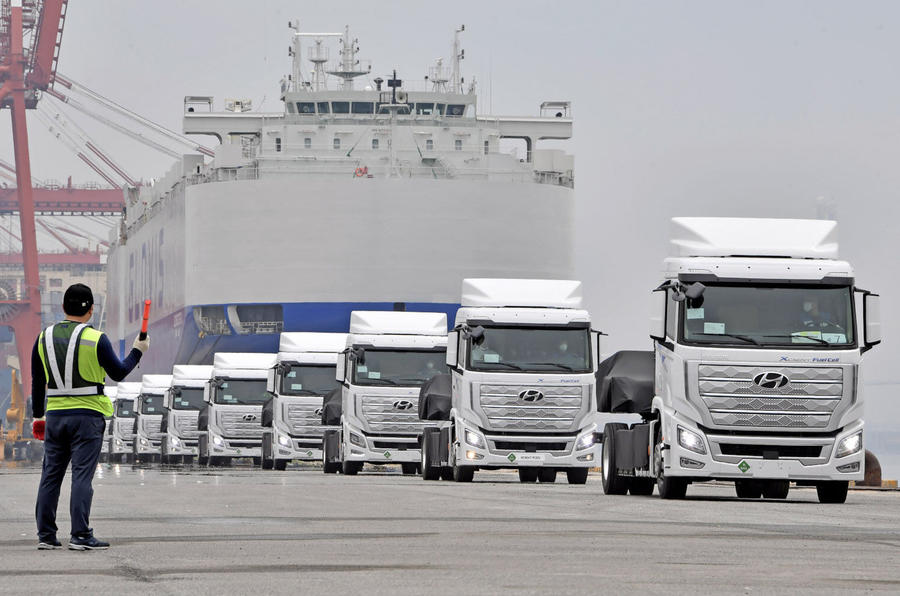The Society of Motor Manufacturers and Traders (SMMT) has called on the UK government to work with the industry on a realistic plan to facilitate the transition to zero-emissions heavy goods vehicles (HGVs) before announcing a deadline to ban new ICE vehicles.
According to the SMMT, support from the government is needed to provide a charging and refuelling infrastructure that can handle commercial vehicle demands. The SMMT is also calling on the government to help train (or retrain) technicians to maintain zero-emissions vehicles.
The government is looking to propose a 2040 deadline for the end of sale for ICE commercial vehicles.
European HGV manufacturers have agreed to produce fossil fuel-free vehicles by 2040, but these vehicles need a public network of charging and refuelling points to support the switch to zero-emissions propulsion.
Currently just 0.2% of HGVs are alternatively fuelled; cars attained the same proportion in 2007. Electric vans are proving to be more popular than electric HGVs, with 2.6% of new vans being electric. However this still falls behind new electric cars, which have an 8.2% share of the market.
The European Automobile Manufacturers’ Association (ACEA) estimates that some 8200 HGV charging points are required to facilitate a network of zero-emissions HGVs. To achieve this goal by 2030, two new charging points would need to be installed every day.
Hydrogen has long been cited as the more appropriate fuel for different weight classes of commercial vehicles, but with only 11 refueling stations currently operating in the UK, installing the infrastructure for hydrogen-fuelled vehicles is a larger undertaking.
SMMT chief Mike Hawes said: “The industry is committed to be fossil-fuel-free, but there's not yet a clear technology path for every weight class and every use case.
“Before it sets a deadline for the sector, the government must support the technological development and market proposition and provide the right framework so hauliers don’t defer their decarbonising decision to the last minute. Plans before bans is the key.”
In order to make the move to a zero-emissions fleet without public infrastructure, companies that can afford to do so are installing their own charging stations at their depots. While this is a good solution for short, back-to-base-style fleets, this is hard to implement on a wider scale.
Speaking at an industry forum at the Commercial Vehicle Show, Hawes added: “The ‘first mover’ disadvantage is something that's bedevilling the entire transition to decarbonised transport. Some way of sharing set-up costs is needed, so the first operator in an area doesn’t end up paying 100% of the cost to set up.





Join the debate
Add your comment
Britain, can't you see that China, India and Russia are laughing at you, unable to believe you became so stupid.
Apathy, heard of it?, yes, it should be looked at, yes, 2040 is plenty time from now to sort it out, should it all be funded by the Government?